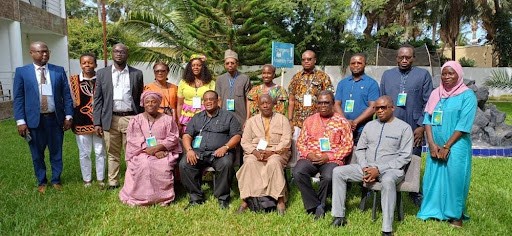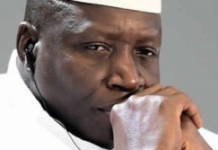By Nelson Manneh
Recognizing the urgent need for collective action against environmental degradation and climate change in Africa, the Africa Centre for Democracy and Human Rights Studies (ACDHRS), with funding from the Ford Foundation, collaborated with ‘The Open Society Foundation – Africa (OSF) and commenced a three-day training on regional and international environmental protection and climate change mechanisms.
The training, which commenced yesterday Wednesday, August 28, will end tomorrow Friday 30th August 2024 on the theme: “From Environmental Conservation to Climate Action: Empowering Civil Society Organizations in Africa for Sustainable Development and Human Rights Advancement.”
The event aims to empower civil society actors and organizations as key agents of change in addressing environmental challenges and advancing climate resilience across the continent, and the program sought to enhance participants’ knowledge and foster their collaboration through the promotion of innovative solutions that will contribute to a more sustainable and resilient future for Africa.
The training aims to equip CSOs working on environmental and climate change issues in Africa with the knowledge and skills necessary to enhance the protection of human rights through engagement with international and regional human rights mechanisms.
At the commencement of the training, participants were introduced to the functions and procedures of the African Commission on Human and Peoples’ Rights and were inspired to actively participate in the Commission’s activities concerning environmental and climate-related issues.
The objective of the training is to also explore the unique roles that CSOs could play in promoting democracy, upholding the rule of law, and advocating for environmental justice and sustainable development. The training facilitated dialogue and the exchange of experiences among CSOs from diverse backgrounds in The Gambia and will work to establish a network of CSOs dedicated to promoting and protecting human rights on environmental and climate change issues in Africa.
The expected outcomes include participants gaining a better understanding of regional and international environmental protection and climate change mechanisms, strengthening their capacity to advocate for environmental sustainability and climate resilience, and establishing networks for collaboration and collective action.
Ms Hannah Forster, the Executive Director of the ACDHRS in her welcome address, emphasized that the training specifically targets West African countries, with representatives from eleven nations in attendance.
She highlighted the critical issue of climate change by underscoring its profound impact on Africa and said climate change significantly affects the continent’s resources and directly influences the lives and livelihoods of many Africans.
Dr. Nana K.A. Busia, an Assistant Professor and Research Fellow at the University of London, said the training brought together civil society organizations (CSOs) to discuss various critical issues. He acknowledged that he was initially skeptical about climate change, believing that the focus should be on building roads and cutting down trees. He however said that he later realized that the destruction of trees and the environment has a massive impact, resulting in significant environmental damage without any real development.
Dr. Busia advised participants to consider the limitations of governments and understand how to strategically engage non-state actors who are sometimes more powerful than the state, to effectively address climate change and recommended the ACDHRS to continue to explore the critical intersection of human rights in such training sessions.
Edmund Foley, the Executive Director of the Legal Aid Commission, remarked that it is important for the center to consider the future, noting that by 2050, one out of every child born in the world will be in Africa. He emphasized that the workshop is not only addressing the current challenges of climate change but is also looking ahead to the future. Foley urged participants to amplify these challenges and ensure that the discussions extend beyond the present, to prepare for what lies ahead.





















